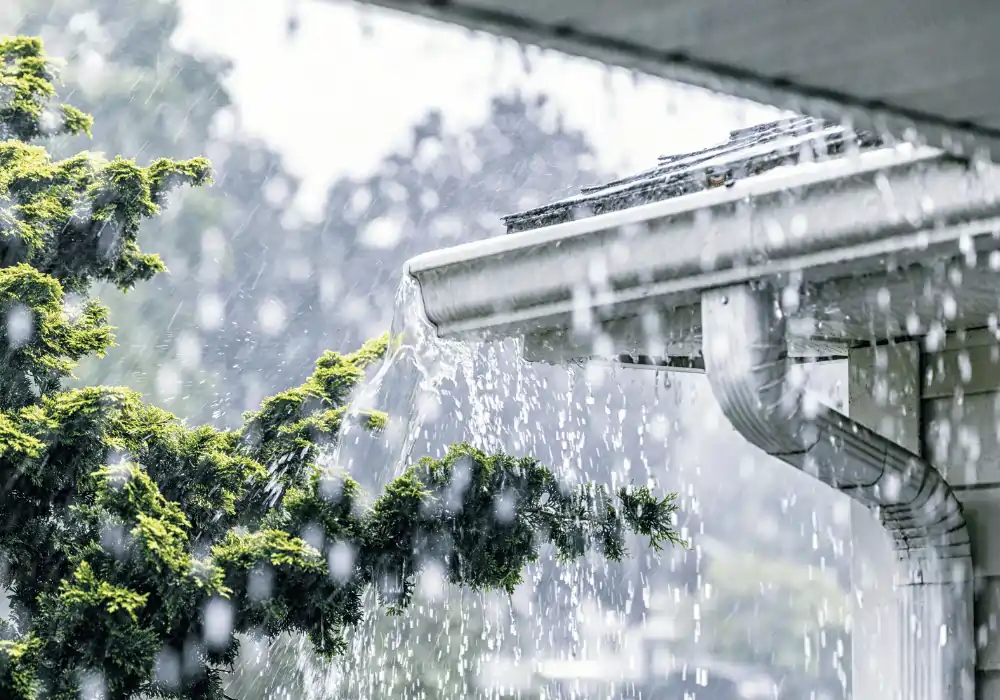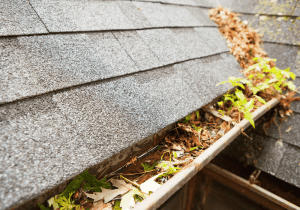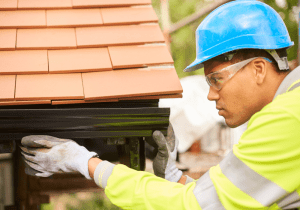All About Gutter Overflows
If you have ever had a gutter overflow, you know how frustrating it can be. It creates a mess, ruins your landscaping, and can even compromise the integrity of your home. The good news is that gutters rarely overflow for no reason. There is almost always an underlying issue causing the problem. By identifying the cause, you can take steps to prevent future overflows and protect your home. In this post, we will take a closer look at how to identify the cause of gutter overflows.
 Clogged Gutters
Clogged Gutters
The most common cause of gutter overflows is clogged gutters. As debris accumulates in your gutters, the water has nowhere to go, causing it to overflow. If you notice water cascading over your gutters during rainfall, it’s a good indication that they are clogged. To prevent clogged gutters, make sure to clean them at least twice a year or invest in a gutter guard system that keeps debris out while allowing water to flow through.
Sloped Gutters
Gutters that are not properly sloped can also cause overflow problems. If your gutters slope forward or backward, rather than towards the downspout, water can accumulate, leading to overflows. Check the slope of your gutters by pouring water into them and observing where it flows. If it doesn’t flow towards the downspout, you may need to have your gutters adjusted by a professional.
Damaged Gutters
Damaged gutters can also cause overflow problems. If your gutters are dented, warped, or have holes, they may not be able to handle the amount of water running through them. Inspect your gutters for any signs of damage and have them repaired or replaced as needed.
 Incorrectly Sized Gutters
Incorrectly Sized Gutters
Gutters that are too small for your roof can also cause overflow problems. When sizing gutters, it’s important to take into account the size and slope of your roof, as well as the average rainfall in your area. If your gutters are too small, they may not be able to handle the amount of water running off your roof. Consult with a professional to determine the correct size for your home.
Clogged Downspouts
Finally, clogged downspouts can also cause gutter overflows. If water is not properly flowing through the downspout, it can back up into the gutter, causing it to overflow. Check your downspouts for any blockages and clear them out as needed.
Gutter overflows can be frustrating, but they are almost always caused by an underlying issue that can be fixed. By identifying the cause, you can take steps to prevent future overflows and protect your home. Keep an eye out for clogged gutters, incorrectly sized gutters, damaged gutters, sloped gutters, and clogged downspouts. By addressing these issues, you can ensure that your gutters are functioning properly and that your home stays protected from water damage.
Armour Shield Roofing strongly discourages homeowners from going up and down ladders or doing repairs on their roofs. The accidents and fatalities sustained by untrained individuals are tragic and avoidable by calling a professional roofing contractor.


 Clogged Gutters
Clogged Gutters Incorrectly Sized Gutters
Incorrectly Sized Gutters